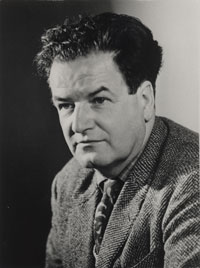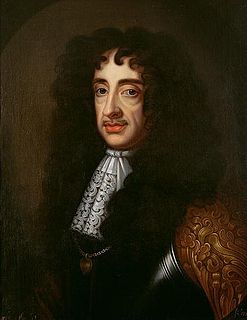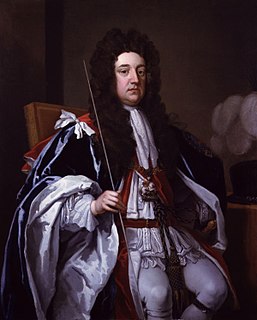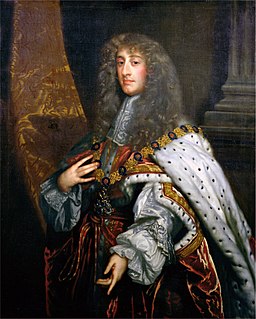David Ogg | |
|---|---|
| Born | 19 June 1887 |
| Died | 28 March 1965 (aged 77) |
| Academic background | |
| Alma mater | |
| Academic work | |
| Discipline | History |
| Institutions | |
| Main interests | Late seventeenth-century England |
David Ogg (19 June 1887 - 28 March 1965) was a Scottish historian who specialised in the history of England during the reign of Charles II and of Europe dominated by Louis XIV of France.
He was born in Glasgow,the son of a civil servant,Archibald Ogg. He was educated at Glasgow University and Lincoln College,Oxford,after he won a scholarship. Ogg won the Stanhope Prize (1910),the Lothian Prize (1911) and the Chancellor's Essay Prize (1912). [1]
In 1912 he won an Open Fellowship at New College,Oxford,where he served as tutor and later as sub-warden and librarian. [1] During the First World War,Ogg served in the Royal Navy as Paymaster. [1]
His most popular work,Europe in the Seventeenth Century,was first published in 1923 and went through eight editions during Ogg's life and one last slightly-altered 9th edition after the author passed away. Ogg also wrote histories of the reigns of Charles II and James II. [1]
He retired in 1956 and subsequently held visiting professorships at South Carolina University,Charleston College and the University of Texas. In 1959 he was elected to an Honorary Fellowship at New College. [1]
Ogg married Emily Louise White in 1917 and they had one son,John. [1]
In 1963,H. E. Bell and R. L. Ollard edited Ogg's festschrift and said of Ogg:
Those who have had the privilege of knowing David Ogg as a tutor or a colleague will not need to be reminded of those qualities of wit and intellectual elegance,of originality of thought and expression,of common sense applied in an uncommon way,that characterise his talk as unmistakenly as his writing. The deceptive ease with which his exact scholarship and wide erudition have been put at our disposal is no small part of the pleasant debt we all owe him.
The same holds true for,though in the nature of the case less personally,for those who know him only through his books. It would be an imperceptive reader who had failed to notice that in both the fields that Ogg has made his own,the England of Charles II and the Europe of Louis XIV,he has challenged both the accepted historiography of the period and the fashionable portrayal of the two eponymous figures of the age. It would be imperceptive,but it would not be impossible. The modulations of irony,the subtle effects of tone,the humility in which,above all,the style reveals the man,will be lost on such as prefer vulgar colours,familiar platitudes,and the techniques of self-advertisement in which modern scholarship can report such notable advances. But the continued and increasing success of Europe in the Seventeenth Century and England in the Reign of Charles II gives good ground for believing that the rare qualities of which his pupils at Oxford and in America have been the chief beneficiaries have been recognised and valued by a far wider public. Of the influence exerted by these books on students of the period there can be no doubt:of their example there cannot be too many imitators. [2]

Charles II was King of Scotland from 1649 until 1651, and King of Scotland, England and Ireland from the 1660 Restoration of the monarchy until his death in 1685.

William III, also widely known as William of Orange, was the sovereign Prince of Orange from birth, Stadtholder of Holland, Zeeland, Utrecht, Guelders, and Overijssel in the Dutch Republic from the 1670s, and King of England, Ireland, and Scotland from 1689 until his death in 1702. As King of Scotland, he is known as William II. He is sometimes informally known as "King Billy" in Ireland and Scotland. His victory at the Battle of the Boyne in 1690 is commemorated by Unionists, who display orange colours in his honour. He ruled Britain alongside his wife and cousin Queen Mary II, and popular histories usually refer to their reign as that of "William and Mary".

John Edward Christopher Hill was an English Marxist historian and academic, specialising in 17th-century English history. From 1965 to 1978 he was Master of Balliol College, Oxford.

Edward Hyde, 1st Earl of Clarendon, was an English statesman, lawyer, diplomat and historian who served as chief advisor to Charles I during the First English Civil War, and Lord Chancellor to Charles II from 1660 to 1667.

The Treaty of Dover, also known as the Secret Treaty of Dover, was a treaty between England and France signed at Dover on 1 June 1670. It required that Charles II of England would convert to the Roman Catholic Church at some future date and that he would assist Louis XIV with 60 warships and 4,000 soldiers to help in France's war of conquest against the Dutch Republic. In exchange, Charles would secretly receive a yearly pension of £230,000, as well as an extra sum of money when Charles informed the English people of his conversion, and France would send 6,000 French troops if there was ever a rebellion against Charles in England. The secret treaty was signed by Arlington, Arundell, Clifford, and Bellings for England and Colbert de Croissy for France. The two kings exchanged letters of ratification and kept secret the existence of the treaty. A public treaty of Dover was also negotiated, but it was a screen designed for propaganda purposes and to hide the religious dimension of the secret treaty. The Third Anglo-Dutch War was a direct consequence of this treaty. The actual treaty was published by historians a century later.

Sidney Godolphin, 1st Earl of Godolphin was a leading British politician of the late 17th and early 18th centuries. He was a Privy Councillor and Secretary of State for the Northern Department before attaining real power as First Lord of the Treasury. He was instrumental in negotiating and passing the Acts of Union 1707 with Scotland, which created the Kingdom of Great Britain.

Edward Montagu, 1st Earl of Sandwich, KG PC FRS JP was an English military officer, politician and diplomat, who fought for the Parliamentarian army during the First English Civil War and was an MP at various times between 1645 and 1660. A loyal supporter of Oliver Cromwell, he was a member of the English Council of State from 1653 to 1659 and General at sea from 1656 to 1660. Following Cromwell's death in 1658, he switched allegiance and played an important role in the Restoration of Charles II in May 1660.
Early modern Britain is the history of the island of Great Britain roughly corresponding to the 16th, 17th, and 18th centuries. Major historical events in Early Modern British history include numerous wars, especially with France, along with the English Renaissance, the English Reformation and Scottish Reformation, the English Civil War, the Restoration of Charles II, the Glorious Revolution, the Treaty of Union, the Scottish Enlightenment and the formation and collapse of the First British Empire.

Sharon Turner was an English historian.

Birinus was the first Bishop of Dorchester and was known as the "Apostle to the West Saxons" for his conversion of the Kingdom of Wessex to Christianity. He is venerated as a saint by the Roman Catholic Church, the Eastern Orthodox Church, and Anglican churches.

Herbert Albert Laurens Fisher was an English historian, educator, and Liberal politician. He served as President of the Board of Education in David Lloyd George's 1916 to 1922 coalition government.
Geoffrey Ernest Maurice de Ste. Croix,, known informally as Croicks, was a British historian who specialised in examining the classical era from a Marxist perspective. He was Fellow and Tutor in Ancient History at New College, Oxford from 1953 to 1977, where he taught scholars including Robin Lane Fox, Robert Parker and Nicholas Richardson.
Richard Ollard (1923–2007) was an English historian and biographer. He is best known for his work on the English Restoration period.

James II and VII was King of England and King of Ireland as James II, and King of Scotland as James VII from the death of his elder brother, Charles II, on 6 February 1685. He was deposed in the Glorious Revolution of 1688. He was the last Catholic monarch of England, Scotland, and Ireland. His reign is now remembered primarily for struggles over religious tolerance, however, it also involved struggles over the principles of absolutism and the divine right of kings. His deposition ended a century of political and civil strife by confirming the primacy of Parliament over the Crown.
Henry William Carless Davis was a British historian, editor of the Dictionary of National Biography, and Oxford Regius Professor of Modern History.
Sir John Dalrymple of Cousland, 4th Baronet FRSE FSA(Scot) was a Scottish advocate, judge, chemist and author, best known for his Memoirs of Great Britain and Ireland from the dissolution of the last parliament of Charles II until the sea battle of La Hogue, first published in 1771. A new edition of 1790 carried on to the capture of the French and Spanish navies at Vigo. The Dalrymples formed a dynasty in the Scottish legal profession. Though he was a central figure in the Scottish Enlightenment and a friend of persons like David Hume and Adam Smith, Dalrymple's writings were little appreciated – he has been seen as an irritating member of the Edinburgh literati.
Maurice Percy Ashley was a noted historian of the 17th Century and editor of The Listener. He published over thirty books, of which his Financial and Commercial Policy Under the Commonwealth Protectorate (1934) achieved wide academic influence, while his biographies Cromwell (1937) and General Monck (1976) received particular praise.
Thomas Lionel Hodgkin was an English Marxist historian of Africa "who did more than anyone to establish the serious study of African history" in the UK. He was married to the Nobel Prize-winning scientist Dorothy Hodgkin.

The Stuart period of British history lasted from 1603 to 1714 during the dynasty of the House of Stuart. The period ended with the death of Queen Anne and the accession of King George I from the German House of Hanover.
William Norman Hargreaves-Mawdsley was a British historian, and expert on the history of legal and academic dress.